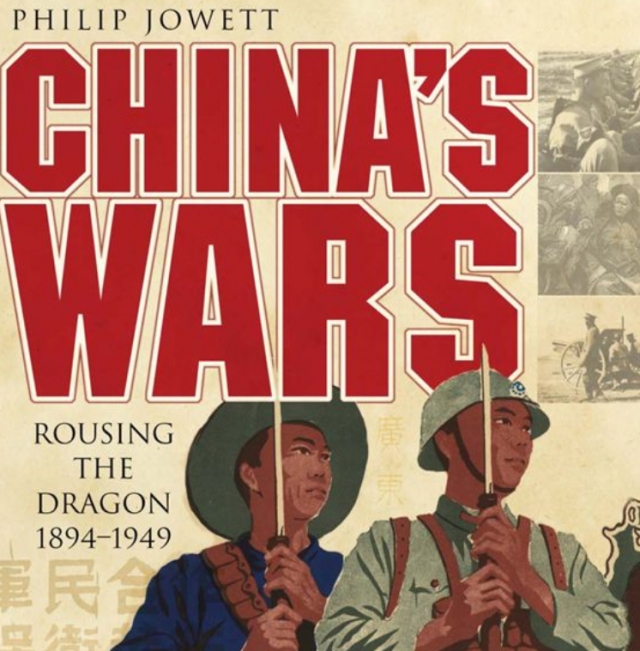China's Wars: Rousing the Dragon
Review

China's Wars: Rousing the Dragon 1894-1949, Philip Jowett, Osprey, 2013, 408p, £25-00. ISBN 978-1-78200-407-3
This is richly illustrated and a work of meticulous detail. Anyone interested in the small detail of the various civil wars and invasions which beset China between 1894 and the moment that Mao Tse-tung secured Communist control of the mainland in 1949 will find this book very fascinating. Philip Jowett provides all that one would need to know about the detail of the various campaigns, the chief personalities involved, the scale of the military hardware harnessed and indeed the sourcing of that hardware.
However a more general reader can use this book, with its clear sub-headings, its clear index and its splendid illustrations, to give themselves a clear overview of what happened in this hitherto secretive part of the world, remote from the industrialised West. This will reveal to them that, whilst severely unpleasant and horrific events were unfolding in the West, a prolonged tragedy of enormous proportions occurred in China, in which huge armies waged extensive blood-thirsty campaigns, almost without ceasing. Because of its strategic interests Soviet Russia had expectations of playing a part, especially in Manchuria, and the Japanese saw China as an area for expansion and exploitation, which reached a climax with their declaration of war and invasion in 1937. Their occupation was then superseded by the civil war between Chiang Kai-shek's Kuomintang and the ultimately victorious Communists.
It is easy for us to deny our own ignorance but this book has re-enforced just how ignorant I was of the scale and protracted nature of the suffering imposed on the Chinese population by internal rivalries and external invasion. My only academic encounter with this topic was ‘World History 1919 to the present' as my A level special option and I doubt whether we spent more than three hours on the Chinese element of that course. This is not a retrospective criticism: rather it is a reflection on what perspectives were fifty years ago. Philip Jowett has made a very strong contribution to providing a more secure foundation to my understanding.

